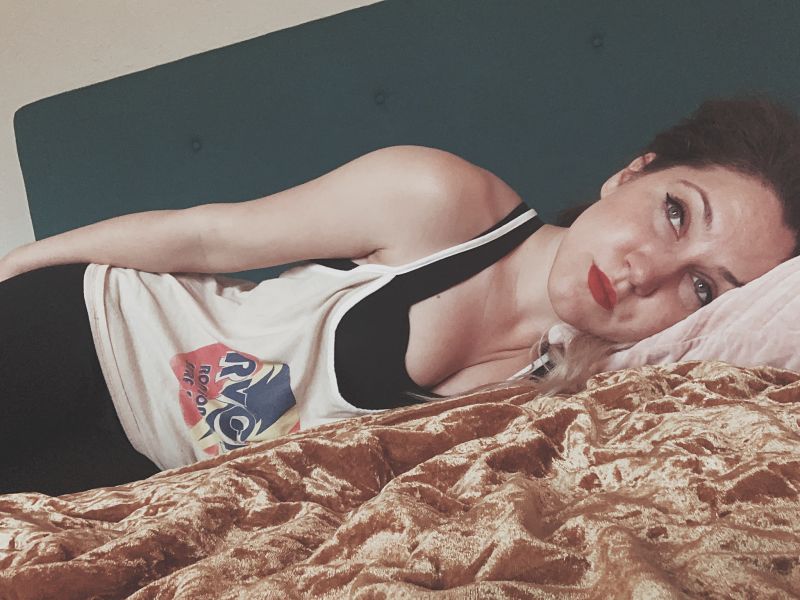She handed me three sample packets of medication, a liner for my underwear, and a brochure which spelled out all the foods I could no longer eat. She, the urology nurse, then walked me down the hallway to set up appointments for bladder installations which would possibly (they didn’t) heal my bladder wall.
This scene takes up a large portion of a memoir I hope to have out to you all in the future, but it also occupies a portion of my brain I wish it didn’t. The feeling of complete panic. The feeling of isolation. The complete and utter loss of self. Oh, and not to mention the pain that didn’t go away for a year and a half.
I am not a believer in the adage “everything happens for a reason”. In fact, there is not a phrase I hate more. I do not believe I was given a disease for a reason. I do not believe people get cancer for a reason. I do not think children die or pandemics shut down the world, for a flipping beautiful rainbows in the sky, bluebirds tying up your hair in ribbons, kind of reason.
And if you had said that to me anytime between 2015 and 2017 I may have hated you. Or imagined cats shooting lasers in your direction: because this would have also made me laugh and given me some weird sense of control. Sometimes I have very strange ways of coping.
I do NOT believe everything happens for a reason. I do not believe everyone heals. I do not believe one positive thought will change the world. I do, however, believe that life can still be beautiful and amazing and stunning, despite, and sometimes, even because of chronic illness.
I also believe that along with the meds, the panty liner, and the diet from hell, I should have been handed a card for mental health support. Doctors tell us our lives are forever altered. We are forever sick, and we’re expected to just adjust to that with no fallout, like someone just offered us the weather report.
Because we are not dying, our friends and family are relieved. Because we are not dying, our doctors just hand us meds (or in my case, pump them into my bladder) and hope they work. Because we are not dying, a medical system has seriously failed us by sending us out into the world without knowing that we actually just died.
We died when we heard chronic.
We died when we found out we could no longer eat the foods we love.
We died when realized we would never be the person we were before.
It took me a very long time to pick up the pieces of who I was and try to put them back together into who I was currently. And, as I realized what helped, and how much I had been neglecting in other areas of my life, and how important mental health support is when one is diagnosed with a chronic illness, I promised that I would create something to help others as they walked the same rocky road (another food I could no longer have after diagnosis: rocky road ice cream).
I started with this blog. Then I thought up the idea of the Chronically Well Podcast. And now, I have a resource that I am as giddy as a kid on Christmas to share. It is completely free and I wrote it for the person who just found out they have an illness. OR the person who has been sick for years and finally wants to get well. Or you know, anywhere in between works too.
A forever diagnosis will change your identity. There is no question of that really. But it doesn’t have to be the end of you, friend. For me, it was just the beginning. This resource is going to walk you through all the things I have found as someone with an illness, and as a mental health professional, and through trial and error, that have helped me not return to the person I was before, but reclaim an identity of someone even better.
So, just click the download button below to get a four week plan to reclaiming your identity after chronic illness. I want to be your friend on your journey, and I hope this resource can be our first adventure.

